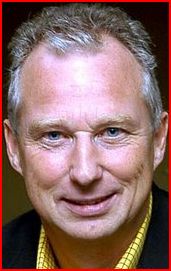Sir Harry Evans (top), the distinguished former editor of the
The Times and
Sunday Times, used the annual Hugh Cudlipp Lecture last night to launch a ferocious attack on the critics of the Leveson Report and their opposition to statutory underpinning of press regulation.
He damned much of the British press reaction to Leveson as showing cynicism and arrogance and accused it of misrepresenting the report's main proposal.
Sir Harry, speaking at the London College of Communication, asked: "Is there something about the ownership, tradition, structure and personnel of the British press that breeds a unique recidivism in which we seem doomed to experience what the economists call a negative multiplier effect – every reform provoked by some abuse is followed by still grosser offences and, if we are to believe the defenders of the status quo, by still more extreme reformist assaults on the sacred freedom of the press bequeathed to us from time immemorial etc. Milton! Locke! Wilkes! Mill!
"Have ever those who recruit you to their cause more reminded us of Queen Gertrude: they doth protest too much, methinks. Twenty years ago when from my American experience I was arguing here for a Freedom of Information Act, I was asked, reasonably enough, freedom for what?
"Freedom for exposing the records of a mental health therapist? Freedom for the clandestine taping of calls, the toxic seed of hacking yet to be fertilised by technology? Freedom to trespass in hospital wards? Freedom to ridicule a Minister because she has put on weight? Freedom to corrupt the police? Freedom to snoop on children at school? Freedom to blackmail and bribe?
He argued: "Freedom of the press – importantly to inquire as well as to utter in the public interest – is too great a cause, too universal a value to a civilised society, to be cheapened as it is in the current debates."
Sir Harry said upwards of 100 journalists are killed each year in the name of the freedom of the press and contrasted their sacrifice with the "sleaze merchants" whose culture was "rotten, corrupt, bullying, mean and cynical, inured to the misery caused by their intrusions, contemptuous of ‘do-gooder’ press codes.
"They betrayed the ideals and principles that have animated generations of journalists – but they felt they were above the law."
He added: "As depressing as exposure of the dark arts has been, it is deepened by the cynicism and arrogance of much of the reaction to Leveson, coming from figures in the press who did nothing to penetrate - indeed whose inertia assisted - the cover-up conducted into oblivion by News International, a cover up which would have continued, but for the skill of Nick Davies and the courage of his editor."
Sir Harry hit out at the way the Leveson Reort had been covered by the press. "The misrepresentation of Leveson’s main proposal is staggering. To portray his careful construct for statutory underpinning as state control is a gross distortion."
He said he regarded Leveson's proposals on statutory underpinning of press regulation as "an opportunity not a threat."
Sir Harry argued that the Leveson Report shows a way to protect privacy and encourage high standards while enlarging, not diminishing, the freedom of the press.
He said: "Lord Leveson did not propose that a law should be passed laying down how the press should behave with civil servants as censors. Did not. Did not.
"He entirely accepted that it should regulate itself through a Trust, though with independent opinion dominant. He more or less accepted the architecture proposed by the press but wanted a surveyor to check that its foundations were stable.
"Let me emphasise: he sees regulation of the press organised by the press, but with a statutory process to ensure that the required levels of independence and effectiveness are met."
Sir Harry did have some criticisms of Leveson and said he thought it was "soft" on the police.
Bob Satchwell, executive director of the Society of Editors, responded to the speech by telling Sir Harry: "The problem is we don't have the protection of a written constitution."
He said politicians could amend any proclamation supporting press freedom with a "but" and asked: "Can we trust politicians of the future? That's why we don't like it."






















